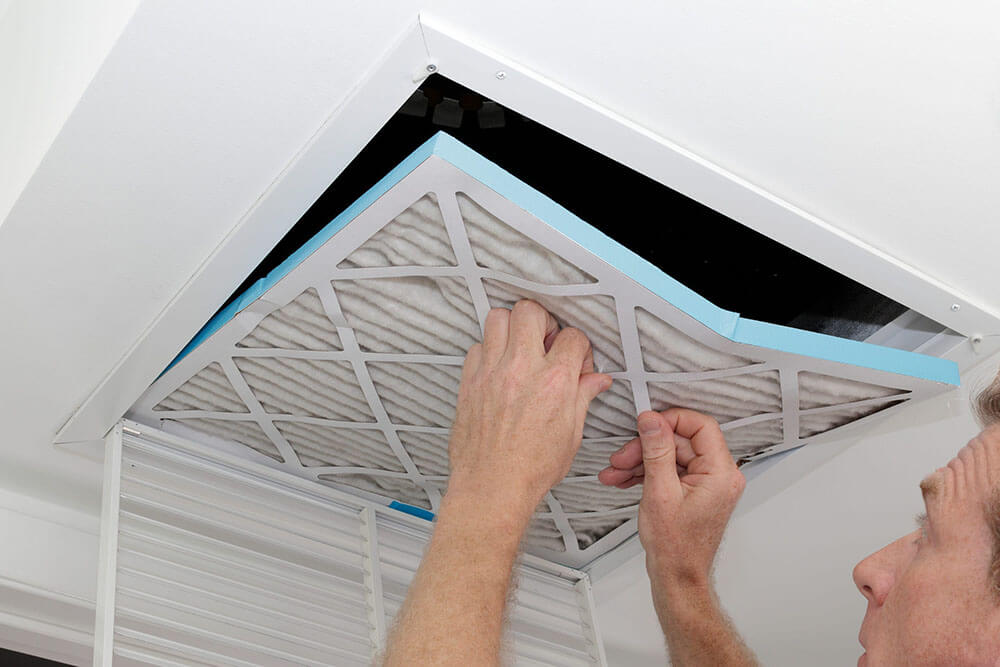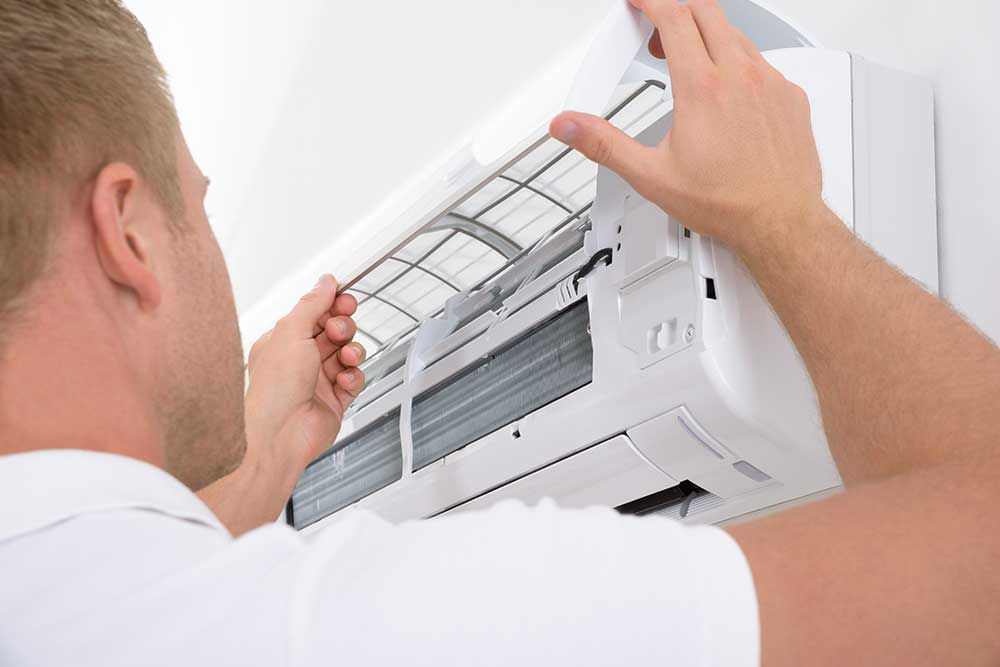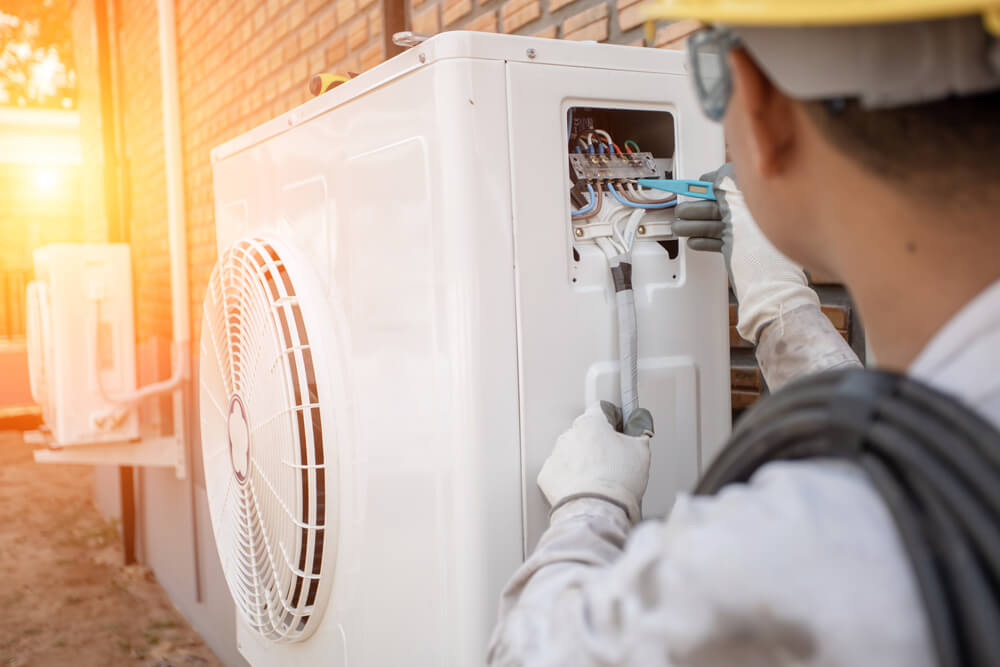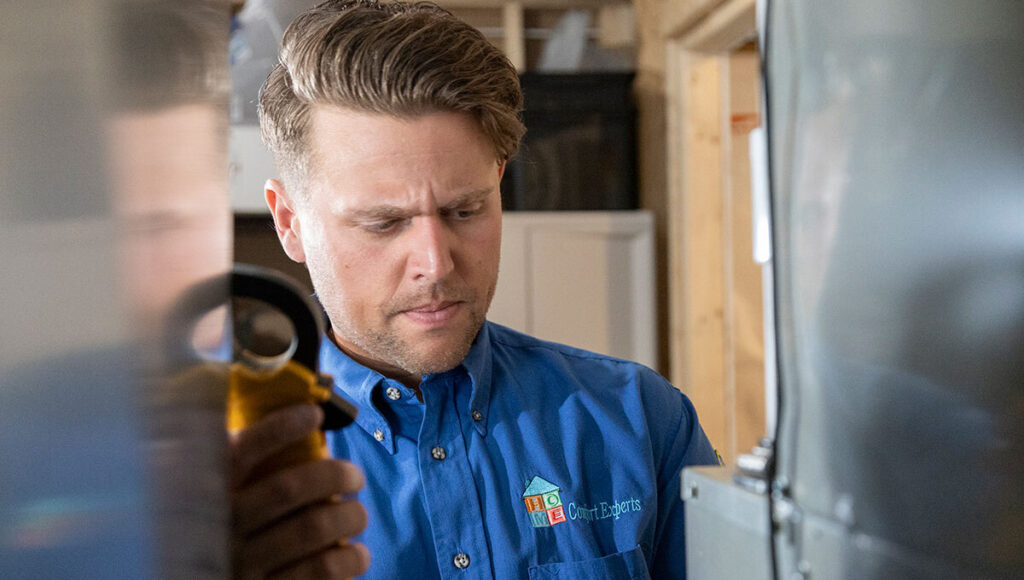Blog
5 Tips to Improve Your Home’s Indoor Air Quality

When most people think of air pollution, they think of giant smog hanging in the air or the depletion of the ozone layer. However, the inside of your home can actually have more polluted air than outside! Lead, dust, formaldehyde, fire-retardants, radon, and other chemicals often found in fragrances or conventional cleaners may be contributing to the poor air quality inside your home. Other pollutants are tracked into the home and trapped in the floors and furniture.
If you want to keep your home’s indoor air quality at a safe and healthy level, follow these tips to improve your home’s air quality:
1. Keep Your Floors Clean
Many different pollutants are tracked into your home from outside. The biggest part of your house that sucks up the bulk of these pollutants is your floor! After walking around all day at work or at school, who knows what kinds of things you are bringing into your home. Chemicals and allergens can accumulate in your house for decades.
By using a vacuum with strong suction, rotating brushes, and a HEPA (high-efficiency particulate air) filter you can ensure that dust and dirt won’t get blown out of the exhaust and right back into your air. Be sure to thoroughly go over high traffic areas, walls, carpet edges, upholstered furniture, or anywhere dust accumulates. Vacuum two or more times every week to ensure your home and floors remain clean.
Be sure to mop to pick up any dust that vacuuming leaves behind. Skipping chemical cleaners and soaps and mopping with plain water is a great way to capture leftover pollutants and allergens. Some newer mop brands may be able to do the trick without any water at all.
One of the best ways to keep your floors clean is by using preventative measures such as doormats. People track all kinds of things into your home with their shoes and using a doormat as a first line of defense can significantly reduce pollutants.
2. Keep Your Home’s Humidity at a Good Level
Dust mites, allergens, and mold love humidity and can be extremely dangerous or potentially toxic. Keeping your home’s humidity at a safe level is a great way to improve your indoor air quality. In order to keep allergens and pollutants under control, it is smart to keep your home’s humidity between 30-50%. Having your humidity above 50% can breed dust mites, mildew, mold, and trigger allergies or other health problems.
During the summertime, a dehumidifier helps to reduce moisture in indoor air and effectively controls allergens. You can also try using an exhaust fan or cracked window when cooking, running the dishwasher, or bathing in order to decrease humidity.
Having low humidity in your home can also be harmful. Low humidity breeds dry skin, colds and coughs, and more. These pollutants not only damage the indoor air quality, but they also put your family at risk. A humidifier can help to bring your house’s humidity above the 30% threshold and into safe territory.
3. Regularly Change Air Filters
Like any machine that requires maintenance, and regularly changing your furnace’s air filters is a great way to keep it clean. When debris and residue build up in your air filters, it is only a matter of time before it starts to spread throughout the rest of the house. You should be changing your air filters every month, especially during the winter months when your furnace is working harder.
Dirty air filters worsen your indoor air quality and make symptoms worse. It is far easier and cheaper to remember to replace your air filters every month than having to deal with broken furnaces or HVAC systems, or even health problems. Give yourself peace of mind by regularly changing your air filters.
4. Have Your Air Ducts Professionally Cleaned
It is extremely important to have your air ducts cleaned professionally and regularly. A dirty air duct can cause allergies, colds, and other health problems. If you haven’t had your air ducts cleaned in years, it is time to call a professional to have them cleaned. Having your air ducts cleaned not only vastly improves air quality, but it also will save you money on energy costs.
All kinds of things can be hiding in your air duct system including dust, dust mites, mold, allergens, pet dander, and dangerous bacteria. If you go too long without having your air ducts cleaned, they can spread these pollutants throughout your home. Dirty ducts don’t just put your HVAC system at risk of damage. They can also affect your family’s health, triggering asthma attacks, coughing and sore throat, flu-like illnesses and eye and throat irritation.
5. Have Your Dryer Vent Professionally Cleaned
Indoor air quality directly affects the health, comfort, productivity, and quality of life of anyone who breathes in that air. Dust and dirt buildup in your dryer can not only spread and pollute your indoor air, but it can also cause a fire if left untreated. Protect your home and family by having your dryer vents completely inspected and installed.
A professional will perform a complete visual diagnostic of vent lines, vent termination, joint connections, gas lines, washing machine hoses, and all surrounding areas to ensure your dryer vents are clean and safe. The inspection will uncover any deficiencies, damage, improper materials, safety hazards, or inefficiencies within your system. It is vital to have your dryer vents regularly inspected and cleaned.
Conclusion
If you have experienced these issues with your indoor air quality, it may be time for an air duct cleaning or dryer vent cleaning. Contact the heating and cooling professionals at Home Comfort Experts today to learn about the ways we can help you. We serve Northern Indiana and Southwestern Michigan from our 12 locations. Give us a call at (574) 255-4600 to learn about our full complement of heating, cooling and plumbing services.






